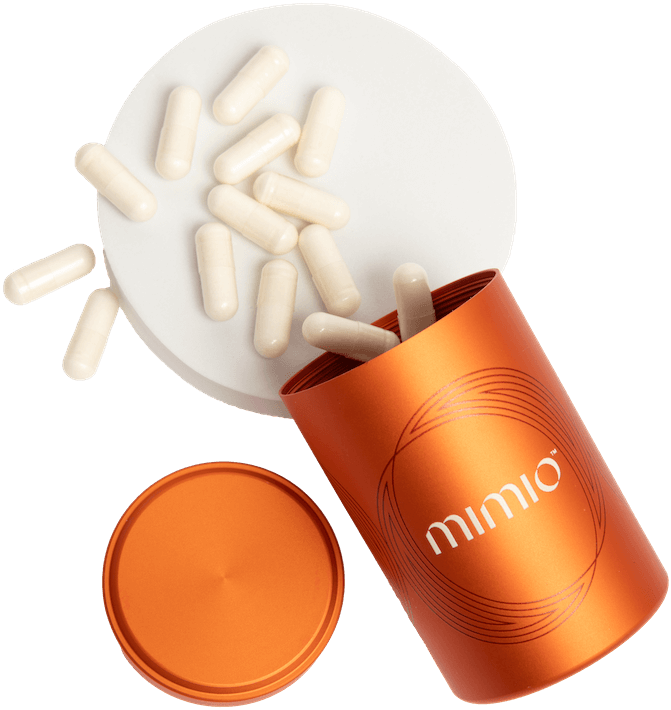Unraveling Ketosis: An In-Depth Look at a Metabolic State
What is ketosis—and why is it suddenly everywhere? From intermittent fasting to ketogenic diets, the concept of ketosis has taken center stage in the health optimization world. But beyond the buzzwords and trendy diets, ketosis is a powerful, natural metabolic state with deep implications for your body’s energy systems, cellular health, and longevity.
In this deep dive, we’ll decode the science behind ketosis, how it works, its benefits (and limitations), and how to tap into it safely and effectively—whether you’re fasting, eating low-carb, or simply curious about how to better support your health.
What Is Ketosis, Really?
At its core, ketosis is a metabolic state in which your body switches from using glucose (sugar) as its main energy source to using fat. This switch happens when your body’s carbohydrate intake drops low enough that stored glycogen (glucose reserves) is depleted. When that happens, your liver starts breaking down fat into molecules called ketones, which your body and brain then use for fuel¹.
In other words, ketosis is your body’s built-in backup generator—a powerful energy strategy that kicks in when food is scarce or when glucose isn’t available.
The Science Behind the Shift
Under normal conditions, your body prefers to run on carbohydrates. But when you remove carbs from the equation (like during a fast or a ketogenic diet), it has to pivot in order to run properly.
Here’s what happens, step-by-step:
-
Glycogen Depletion: After about 12-16 hours of fasting or carb restriction, your body uses up its stored glycogen².
-
Fat Mobilization: Your body turns to fat for fuel. Fatty acids are released from your fat stores and sent to the liver³.
-
Ketone Production: The liver converts these fatty acids into ketones—specifically beta-hydroxybutyrate (BHB), acetoacetate, and acetone³.
-
Ketosis Begins: Blood ketone levels rise, and your body adapts to using them as a primary fuel source—especially in the brain, where they replace glucose for energy³.
Ketosis is not a "hack"—it's a natural metabolic pathway that helped our ancestors survive food scarcity. Today, we can trigger it intentionally to tap into its regenerative benefits⁴.
What Are the Benefits of Ketosis?
Once you’re in ketosis, a whole new world of physiological upgrades becomes available:
1. Fat Burning and Weight Management
Ketosis encourages your body to burn stored fat for fuel. It’s one of the reasons why low-carb diets and fasting are so effective for weight loss. Plus, ketones may suppress appetite and help regulate hunger hormones like ghrelin⁵.
2. Mental Clarity and Focus
Your brain loves ketones. They’re a clean, stable fuel source that can reduce “brain fog,” improve focus, and support better cognitive function—especially in times of metabolic stress⁶.
3. Improved Insulin Sensitivity
Lower carbohydrate intake and increased fat oxidation can help improve insulin sensitivity, reducing the risk of type 2 diabetes and metabolic syndrome².
4. Reduced Inflammation
Emerging research suggests that ketones—especially beta-hydroxybutyrate—have anti-inflammatory effects, potentially protecting against chronic diseases and even neurodegenerative conditions⁶.
5. Cellular Repair and Longevity
Here’s where things get really interesting. Ketosis, particularly when triggered through fasting, activates processes like autophagy—your body’s way of cleaning out damaged cells and recycling them⁷.. This is key for longevity and cellular rejuvenation.
Curious how to trigger these benefits without skipping meals? Some supplements are designed to mimic the effects of fasting and ketosis, giving you the same regenerative edge without the hunger. Mimio Biomimetic Cell Care is one such innovation—formulated to activate the body’s innate healing programs by mimicking the molecular signature of a 36-hour fast.
Ketosis vs. Ketoacidosis: A Quick Note
If you’ve ever heard someone express concern about “ketoacidosis,” it’s important to clear this up.
-
Ketosis is a controlled, healthy metabolic state.
-
Ketoacidosis is a dangerous, uncontrolled condition typically seen in uncontrolled diabetes where ketone levels become dangerously high and cause blood acidity.
For healthy individuals using ketosis therapeutically or for health optimization, ketoacidosis is not a risk.
How to Get Into Ketosis
There are a few well-studied ways to induce ketosis:
1. Intermittent or Prolonged Fasting
Fasting is a fast track to ketosis. Most people enter early ketosis around 16–20 hours into a fast, but deep ketosis often begins after 24–36 hours. During this time, the body ramps up fat burning, autophagy, and ketone production.
Want to learn more about what happens hour-by-hour in a fast? Check out our autophagy fasting chart for a breakdown.
2. Ketogenic Diet
A standard ketogenic diet typically includes:
-
70–75% fat
-
20–25% protein
-
5–10% carbs (usually under 50 grams per day)
This macronutrient profile trains your body to rely on fat and ketones, rather than glucose.
3. Exercise
Physical activity, especially when fasted, helps burn through glycogen faster and speeds up the transition into ketosis.
4. Fasting Mimetic Compounds
Certain natural compounds and supplements can mimic the effects of fasting or support ketone production—without requiring a strict fast. Mimio Biomimetic Cell Care is designed for this exact purpose, providing the molecular signals your cells need to activate fasting-related benefits like autophagy and ketogenesis, even while you eat.
Common Signs You’re in Ketosis
How do you know it’s working? Here are some signs you might be in ketosis:
-
Increased mental clarity
-
Decreased appetite
-
Elevated ketone levels (can be measured with a blood or breath ketone meter)
-
Weight loss or decreased body fat
-
Mild fatigue or “keto flu” in early stages
Is Ketosis Right for Everyone?
Not necessarily. While ketosis offers powerful health benefits, it may not be ideal or safe for everyone.
Who should use caution or consult a doctor:
-
Pregnant or breastfeeding individuals
-
People with type 1 diabetes
-
Those with certain metabolic or liver conditions
-
Anyone taking medications for blood sugar or blood pressure
The key is to listen to your body and work with a qualified health provider if you’re making significant dietary or fasting changes.
Myths and Misconceptions About Ketosis
Let’s bust a few myths while we’re at it:
-
Myth 1: You have to eat bacon all day to be in ketosis.
Nope. Ketosis isn’t about eating tons of fat—it’s about reducing carbs enough to shift your metabolism. It can be done with healthy fats, clean proteins, and even plant-based foods. -
Myth 2: Ketosis is dangerous.
For healthy individuals, nutritional ketosis is safe and has been studied extensively. Ketoacidosis is the dangerous version, and it’s not the same. -
Myth 3: It’s all or nothing.
Even short bouts of ketosis can deliver benefits. You don’t have to be in deep ketosis 24/7 to see results.
The Future of Ketosis: Where Innovation Meets Biology
As more research emerges on fasting, metabolic health, and aging, ketosis is becoming a key tool in the biohacker’s toolkit—and even in clinical settings. But maintaining ketosis long-term can be tough, especially with social meals, travel, and life.
That’s where biomimetic solutions come in. Supplements like Mimio are designed to replicate the internal signals and benefits of fasting, helping you realize the rewards of ketosis and autophagy—no 36-hour fast required.
Because optimizing your health shouldn't mean missing out on life.
Your Metabolism, Your Power
So, what is ketosis? It’s not just a diet trend—it’s a sophisticated biological system designed to protect, repair, and fuel your body when food is scarce. By understanding how to tap into this ancient metabolic state, you can unlock a new level of energy, mental clarity, and longevity.
Whether you're fasting, eating low-carb, or using biomimetic support or supplements, the path to cellular health is clearer than ever.
Ready to see what your biology can really do?
References
-
Cahill, G. F. (2006). Fuel metabolism in starvation. Annual Review of Nutrition, 26, 1–22.
-
Paoli, A., Rubini, A., Volek, J. S., & Grimaldi, K. A. (2013). Beyond weight loss: a review of the therapeutic uses of very-low-carbohydrate (ketogenic) diets. European Journal of Clinical Nutrition, 67(8), 789–796.
-
Newman, J. C., & Verdin, E. (2017). β-Hydroxybutyrate: A Signaling Metabolite. Annual Review of Nutrition, 37, 51–76.
-
Volek, J. S., Phinney, S. D. (2011). The Art and Science of Low Carbohydrate Living. Beyond Obesity LLC.
-
Poff, A. M., Ari, C., Arnold, P., Seyfried, T. N., & D’Agostino, D. P. (2014). Ketone supplementation decreases tumor cell viability and prolongs survival of mice with metastatic cancer. International Journal of Cancer, 135(7), 1711–1720.
-
Bruckner, C., et al. (2017). Ketone bodies and the ketogenic diet: roles in neuroprotection. Epilepsy Research, 129, 210–216.
-
Madeo, F., Carmona-Gutierrez, D., Hofer, S. J., & Kroemer, G. (2019). Caloric restriction mimetics against age-associated disease: targets, mechanisms, and therapeutic potential. Cell Metabolism, 29(3), 592–610.



